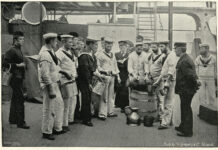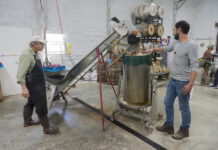As a new or emerging distillery, it’s important to learn about the types of interactions that you may have with the Alcohol and Tobacco Tax and Trade Bureau (TTB) during the time in which your distillery is operational, as well as common compliance pitfalls that may prompt a TTB investigation or in-person visit, so that you can take the proper precautions to avoid noncompliance and be prepared in the event of a visit from the TTB.
Types of TTB Investigations
There are numerous reasons why the TTB would initiate an audit or investigation at your distillery premises. The TTB may want to conduct a random audit, which happens to most distillers during the time in which the distillery is operational, especially if a distillery has been operational for more than five years. Additionally, the TTB may be prompted to visit your facility due to any form of noncompliance found, which could be related to noncompliant marketing or product integrity issues. The TTB will also often monitor distillers with a larger tax liability to ensure that all taxes are being paid.
Generally, when DSP proprietors think of audits or in-person TTB distillery visits, they automatically think of tax audits, since it is often a missing report or past due tax payment that prompts scrutiny from the TTB. However, not all tax audits address issues of advertising, product integrity, labeling, or general compliance with the Federal Alcohol Administration Act (FAA), as these areas are usually addressed by other TTB divisions and not the TTB’s Tax Audit Division. A TTB investigation could be initiated due to a complaint from the public or other industry members, an investigation into a DSP applicant who has submitted an application to the TTB, an alleged or suspected trade practice violation, an alleged or suspected market compliance violation, or direct issues with a product’s integrity.
The Process
Generally, you will be in communication with the TTB regarding any alleged noncompliance prior to receiving a request to schedule an in-person distillery visit. It is also possible that a TTB investigator or auditor may schedule an in-person visit out of the blue, without any prior communications regarding allegations of noncompliance.
Upon request from the TTB for an on-site visit, an investigator will provide the proprietor with a proposed date and time for the visit and may work with the proprietor if the proposed date is not feasible, although it is highly recommended to accommodate the TTB’s initial request. Typically, the request will indicate the reason(s) for the visit in a general manner, or in some instances, the investigator will simply share the referral from the specific TTB division that found the alleged noncompliance, such as the TTB’s Market Compliance Office (MCO) or the TTB’s Trade Investigation Division (TID).* (See footnote)
If you are unclear as to the reason for the TTB’s visit to your distillery premises or as to the types of information you should have available on the day of the visit, it is important to request more information from the TTB so that you can adequately prepare for the site visit.
Common Audit Triggers
In addition to the nonpayment of taxes, there are a few common triggers that may give rise to a TTB investigation. First, the TTB’s MCO or TID may initiate an investigation into a permittee due to suspected product integrity issues. Product integrity issues may be discovered through a consumer complaint or through the TTB’s alcohol beverage sampling program, wherein the TTB may take a sample of an alcohol beverage product directly from the market to test the product to ensure that the alcohol content and standards of fill are in compliance with the FAA and comport with the information indicated on the label itself. Investigations may also be initiated by the MCO or TID due to product safety issues involving adulterated or contaminated alcohol beverages.
Additionally, noncompliant marketing on social media, websites, or printed materials may be a factor in choosing a specific product to examine for product integrity issues. Sometimes an industry member’s products will be selected as part of the risk-based sample for the fiscal year in question. Products to be sampled may be selected from the industry members who most frequently have label applications returned for correction during the label application process. Industry members with products found to be noncompliant during the label or laboratory review process are often referred to a field investigator for further investigation.
The MCO frequently conducts a review of advertisements and marketing materials, whether digital, print, or otherwise to ensure that the advertising is not misleading, includes the required TTB mandatory statements, ensures that label images depicted in advertising mirror the corresponding approved COLA and contain all mandatory label information, or if making caloric or sugar claims, ensures that those claims are not misleading unless further qualified by either a Statement of Average Analysis or Serving Facts Statement per TTB Ruling 2004-1 and TTB Ruling 2013-2.
How to Prepare for a TTB Site Visit
Upon scheduling an in-person visit at your distillery, there are numerous areas of compliance that the TTB tends to focus on. These areas include, but are not limited to:
Equipment Labeling Procedures: All equipment should be labeled with the corresponding serial numbers, which should align with the serial numbers on file with the TTB.
Spirits Case Identification Markings: Case serial numbers are a part of the required markings that a proprietor must affix to the side of each case of spirits filled within the processing area. 27 CFR 19.489 outlines the required case label markings and consists of (a) a unique case serial number, (b) the kind of spirit contained within the case, (c) the distilled spirits plant number where bottled, (d) the date on which the case was filled, (e) the labeled proof at which the spirit was bottled, and (f) the volume of spirit contained within the case.
Required DSP Layout and Configuration: The layout of your distillery should mirror the most recent diagrams submitted to the TTB.
Security and Safety: All of the security measures reported to the TTB, such as locks on tanks, locks on all doors, windows, and other openings should be functioning and in place.
Storage of Taxpaid Alcohol and Non-Taxpaid Alcohol: Taxpaid spirits must be kept separate from non-taxpaid spirits, and the respective areas should be clearly identified and indicated on the most recent diagrams provided to the TTB.
Changes to Permits After Approval: Changes to TTB permits after approval must be reported to the TTB. Changes that should be reported include updating information about the business entity, such as changes in titled positions, signing authority, the addition of investors, and changes to trade names; as well as changes to the DSP, such as changes to methods of operation, equipment, alternating proprietors, diagram amendments, security, etc.
Records, Reports, and Tax Filings: DSP proprietors should have all records, reports, logs, and receipts from taxes that have been paid available to the TTB for inspection.
Because compliance is so dependent on documentation, it is useful and time-saving to establish good reporting, record keeping, inventory, and product identification marking systems at the inception of your business, as opposed to retroactively trying to remediate years of noncompliance. Operational distilleries also benefit greatly from staying informed and learning from other distillers regarding the types of TTB noncompliance that may trigger a TTB investigation.
In-person distillery visits with the TTB can seem daunting, but implementing organized and systematic reporting and record-keeping procedures, timely payment of taxes, keeping the TTB abreast of any amendments after initial permit qualification, conducting frequent internal compliance reviews, and ensuring that products, labels, formulations, marketing, and advertising comply with the FAA are all useful steps in avoiding scrutiny from regulators, and, in the event of a TTB visit, will certainly streamline preparation.
*Footnote: The TTB’s Market Compliance Office ensures that alcohol beverage advertisements comply with the Federal Alcohol Administration Act and regulations, monitors and responds to product safety issues involving adulterated or contaminated alcohol beverages, responds to consumer complaints regarding alcohol beverage products, and receives and responds to industry member questions and assesses complaints concerning unlawful trade practices in conjunction with the Trade Investigation Division. The TTB’s Trade Investigation Division ensures only qualified applicants are granted permits to engage in the production and distribution of alcohol and tobacco, investigates allegations of trade practice violations in the marketplace, ensures public safety by responding to credible information suggesting a health-related contamination or adulteration of an alcohol product, and conducts investigations of suspected alcohol or tobacco tax evasion.
[Nothing in this article is intended to be and should not be construed as specific legal advice.]








